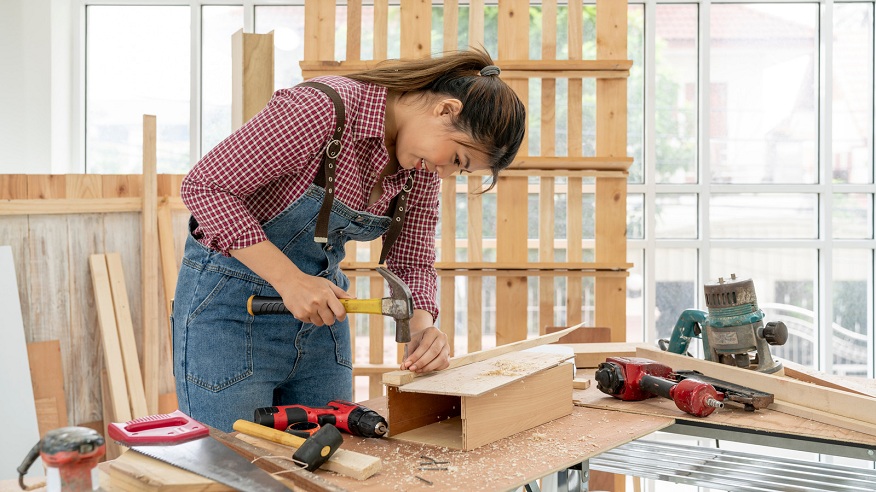In the UK, there is a big movement towards keeping heritage crafts alive.Many crafts involve a level of skill in woodworking, from joinery to cabinetry.
Safety is essential when performing woodworking activities, so make sure you familiarise yourself with official guidance. Risks range from wood dust to noise, as well as slips, trips and falls in your workshop, so it’s important not to dismiss this.
When it comes to securing the right tools for woodworking projects, there are some things to consider. Here’s what you need to know.
Measuring tools
A simple yet essential type of tool, measuring tools are used to help woodworkers achieve accurate and precise outcomes. Measuring tapes, framing squares, spirit levels and sliding T-bevels are some good examples that a typical woodworker should have in their toolbox.
Angles should be exact and the cuts you make in the material in front of you should be onpoint – and these tools can help to maintain the quality of your projects.
Saws
It’ll come as no surprise that saws will be required as a woodworker. There are a few different types to consider. Generally, you’ll need a mix of power and hand saws to allow greater versatility for your projects.
Examples include:
- Coping saws
- Crosscut saws
- Circle saws
- Traditional handsaws
- Hacksaws
- Jigsaws
- Mitre saws
Certain saws are better suited to finer details, while others are ideal for cutting into large chunks of wood. Take the time to familiarise yourself with the pros and cons of both.
Adhesives
Adhesives are used to secure the final product and strengthen the structure.Glue is an essential adhesive and it’s important that you choose the correct type for your project. A popular choice is PVA wood glue as it’s reliably strong and also dries clear. Plus, you can always sand it down if needed.
Meanwhile, epoxy wood glue is a suitable option for more intricate woodworking tasks. Cyanoacrylate, also known as super glue, is perhaps the most reliable option if you need something bonding quickly, as itjoins wood surfaces in seconds – this is done faster than any other glue.
Accessories
Beyond your typical woodworking tools, accessories play an important role. The likes of goggles and aprons can help to protect your eyes and clothing. Other items includemasking tape to temporarily secure items, pencils to help you mark out measurements and sandpaper to neaten any rough surfaces and create a smooth, professional appearance.
Other vital pieces ofequipment might include a table clamp, which is used to secure materials in place while you work on them. Without one, your quality of work would simply be compromised.Something else to consider is how you can enhance your workshop. For example, you may want to invest in suitable lighting so that you’ll always have a clear view of your worktop.
